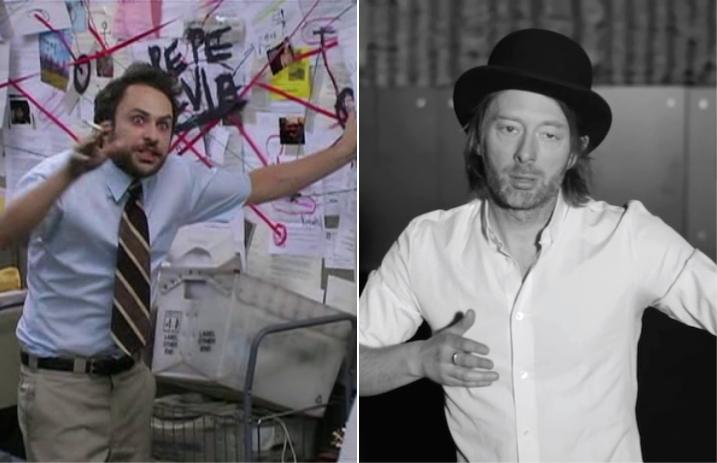

Result: Netflix has removed The Mighty Boosh from their streaming platforms, but it is still available for purchase on video-on-demand services or through the BBC. In “Journey to the Centre of Punk,” a punk musician is infected with a drop of Howlin’ Jimmy’s blood, causing him to scat sing at a punk gig, and prompting a Fantastic Voyage-style journey into his body to track down the “jazz cell,” inadvertently allowing the spirit of jazz to manifest itself in the real world again. Incident: In these episodes of The Mighty Boosh, Noel Fielding plays a character known alternately as “The Spirit of Jazz” and “Howlin’ Jimmy Jefferson.” He appears in a Baron Semedi-like outfit, in a white suit and top hat, dreadlocks, and a white skull painted on his face over black makeup, and says things like, “I’se the spirit of jazz!” In “Electro,” he offers to make another character a famous jazz musician in exchange for his soul. The Mighty Boosh (BBC Three / Adult Swim)Įpisodes: “Electro,” “Journey to the Centre of Punk” “It was always this clown-like make-up and we just came up with what we thought was the scariest idea to have in a sort of Child Catcher–like way.” Pemberton added, “It’s not a political thing at all.” “It was not me doing a black man,” Shearsmith told the Independent. Shearsmith and show creator Steve Pemberton have said in interviews that Lazarou was not intended to be blackface. Result: Netflix pulled the show from its streaming service, but the BBC has left it up, and it is still available for purchase from Apple. Incident: Papa Lazarou is back, and this time he’s trapping local women in a phone booth in hopes of creating a “wife mine.” Incident: Papa Lazarou disguises himself as an ordinary theater director, tricking more women into becoming one of his wives.


Incident: In this Christmas special, Papa Lazarou returns and kidnaps the local vicar.Įpisode: “How the Elephant Got His Trunk” But the single most striking thing about the television industry’s response is just how much blackface has been on television in the 21 st century. As Alyssa Rosenberg observed in the Washington Post and as Atlantic writer Adam Serwer argued on Twitter, the approach networks are taking in some cases-removing these episodes from distribution entirely-has as much to do with whitewashing the histories of these artists and networks as it does confronting or dismantling white supremacy.
ISTREAM TV ROCK ITS ALWAYS SUNNY SERIES
Meanwhile, the protests have inspired a series of long-overdue conversations about the role of racism in a number of other institutions, including the media, Confederate monuments, and the television industry-the last of which has largely responded by removing many TV episodes featuring blackface from streaming platforms.Īs show after show gets removed, two things are becoming clear: The television industry has long been overdue for a reckoning when it comes to blackface, and this isn’t necessarily it. It's an attempt at satire and of a piece with the show's main characters being all-around awful people who are punished for being awful, but it seemed as if Hulu, FX and/or the show's creative team decided they felt it went too far when it was pulled last year.The protests against police brutality sparked by the killing of George Floyd are still ongoing, as Americans all over the country demand radical changes to the relationship between police and civilians. Charlie calls out her act as being extremely racist as he tries to "spice up" their videos with random acts of violence, while Dee doesn't see how what she's doing is any different from what Saturday Night Live does. Dee's "characters" for these videos are all ridiculously dated and offensive ethnic stereotypes: the drunk Irishwoman "Crazy Paddy," the sassy Latina "Martina Martinez" and the buck-toothed Asian "Taiwan Tammy." Dee wears brownface and yellowface for the latter two characters. The offending subplot in "America's Next Top Paddy's Billboard Model Contest" involves Dee and Charlie producing viral videos to promote Paddy's Pub after her offer to model for the bar's billboard ad is rejected by The Gang.

RELATED: It's Always Sunny in Philadelphia's Musical Gag First Appeared in Season 3


 0 kommentar(er)
0 kommentar(er)
